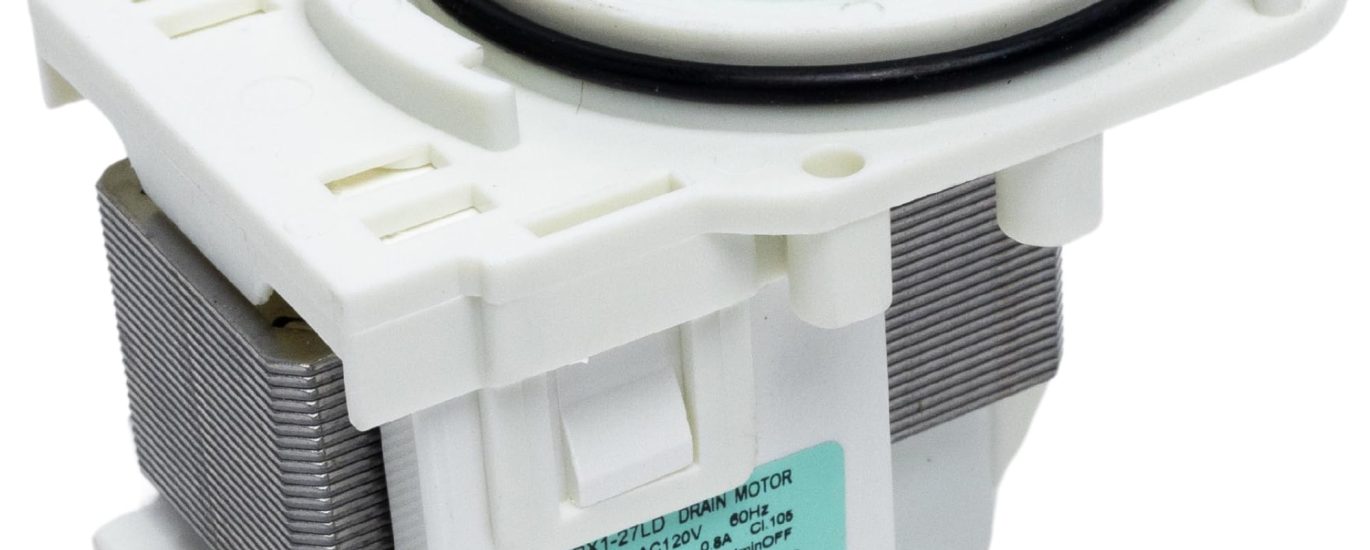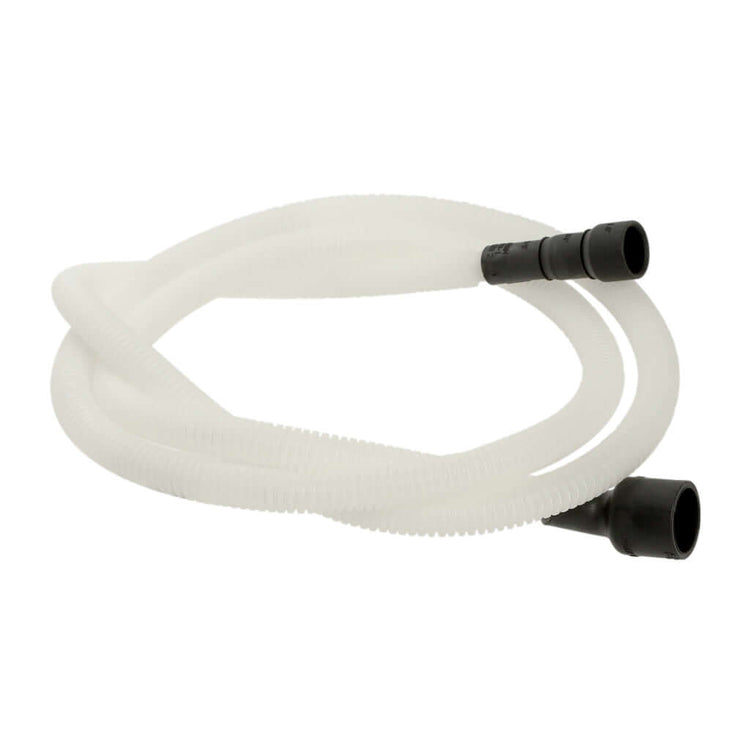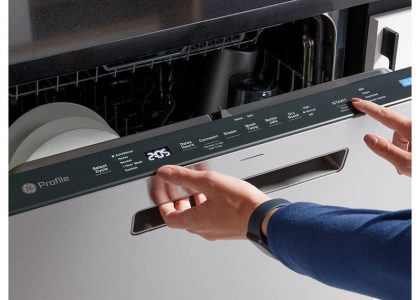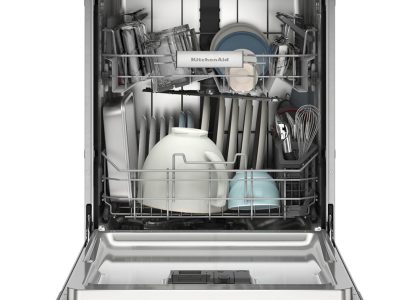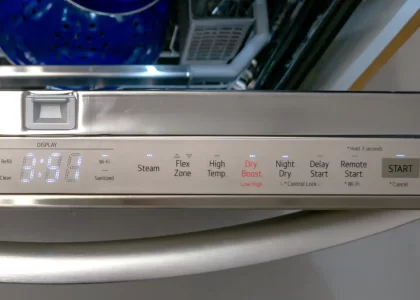Introduction to Frigidaire Dishwasher Drainage
How to drain frigidaire dishwasher? If your Frigidaire dishwasher won’t drain, it’s a common problem that many owners face. This issue stops dishwashers from functioning correctly, leaving dirty water inside. Understanding how to drain your Frigidaire dishwasher is essential. It can save you time and prevent damage to your appliance. This introduction will guide you through identifying and fixing drainage problems. We’ll cover simple checks to more involved steps. These will help restore your dishwasher’s performance. Whether you’re a DIY enthusiast or a first-timer, you’ll find the advice here useful.
Common Reasons Why Your Frigidaire Dishwasher Won’t Drain
Identifying why your Frigidaire dishwasher isn’t draining is the first step to solving the problem. There are several common issues that might be causing this malfunction. First, check for leftover food particles or utensils that could block the drain. Over time, these can accumulate and prevent water from exiting the dishwasher. Next, examine the drain filter and basket. If they’re clogged with debris, they’ll need cleaning to allow water to flow through. A kinked or clogged drain hose can also stop water from draining out.
Furthermore, if your dishwasher’s drain pump or motor has failed, it won’t be able to move water out. Finally, a malfunctioning high loop or air gap installation can lead to drainage problems. By understanding these potential issues, you can begin troubleshooting and restore your dishwasher’s functionality. Remember to turn off the electricity before inspecting any parts to ensure your safety. Always perform these checks when the dishwasher is empty and cool to avoid risks. Knowing how to drain your Frigidaire dishwasher properly will help it run smoothly and keep it in good shape.
Step-by-Step Guide to Draining Your Frigidaire Dishwasher
If your Frigidaire dishwasher isn’t draining, follow these steps to fix the issue. First, make sure your dishwasher is off and cool. Safety comes first. Next, remove any dishes and racks to clear the space. Now, locate the drain filter and basket inside the dishwasher. These often catch food and debris, causing clogs.
Once located, gently take out the filter and basket. Rinse them under running water. Use a soft brush to remove stubborn grime. It’s essential to do this carefully to prevent damage. After cleaning, put the filter and basket back in place. Verify that they are correctly seated.
Next, check the drain hose under the sink. It should curve upwards before going to the drain. This high loop stops water from flowing back into the dishwasher. If you spot any kinks, straighten them out. For any blockages, you might need a plumber’s snake or a similar tool.
If the hose and filter are clear, but water remains, the issue may be with the drain pump or motor. In this case, consult the manual for your specific model. You can often find troubleshooting tips and how to access these parts. Attempting repairs on the pump or motor might be complex. If you feel unsure, it’s best to call a professional.
Follow these steps and use ‘how to drain Frigidaire dishwasher’ as your guide. Regular maintenance can help avoid these issues. But if they persist, seeking professional help may be necessary.
Checking and Cleaning the Drain Filter and Basket
When tackling a Frigidaire dishwasher that won’t drain, start with the drain filter and basket. These components can trap food particles and debris, leading to a clog. Here’s a step-by-step approach to handle this task effectively:
- Turn off your dishwasher and ensure it’s not running. This ensures your safety while cleaning.
- Remove any dishes and racks. This gives you clear access to the filter and basket.
- Locate the filter and basket. You can find these at the bottom of the dishwasher.
- Carefully remove the filter and basket. They usually lift out easily but consult your manual if unsure.
- Rinse the filter and basket under tap water. Use a gentle stream to wash away loose debris.
- Use a soft brush to scrub off stuck-on food or grime. Do this gently to avoid damage.
- Recheck the cleaned filter and basket for any missed spots before replacing them.
- Ensure proper placement back into the dishwasher. They need to sit correctly for optimal performance.
After cleaning, run a short rinse cycle without dishes. If your dishwasher drains, you’ve solved the issue. If not, you might need to proceed to inspecting the drain hose or, potentially, the drain pump and motor.
Routine cleaning of the drain filter and basket is crucial. It prevents future drainage problems and keeps your Frigidaire dishwasher running smoothly. Integrating this into your regular maintenance can save you from bigger issues later on.
Inspecting the Drain Hose for Kinks and Clogs
Once you’ve checked the drain filter and basket, the next step is to examine the drain hose. This hose can sometimes get kinked or clogged, causing your Frigidaire dishwasher not to drain properly. Follow these simple instructions to ensure that the drain hose is in good condition.
- Find the drain hose under your sink. It’s usually connected between the dishwasher and the sink’s drain.
- Look for kinks. Carefully straighten any you find. This will help water flow freely.
- Check for clogs. You can use a flashlight to look inside the hose. Blockages will hinder drainage.
- Feel along the hose. Soft spots may indicate trapped debris inside. These need clearing out.
- Disconnect the hose, if necessary. Do this to remove any clogs using a plumber’s snake or similar tool.
- Flush the hose with water. This helps remove any leftover debris.
- Reconnect the hose securely. Ensure both ends attach firmly to prevent leaks.
If water still pools after these checks, deeper issues may exist. The drain hose could have a more serious blockage or may be damaged. In such cases, seeking help from a professional is often the best course of action.
Regular inspection of the drain hose can prevent these problems. Watch for signs of wear or damage over time. Replace the hose promptly if needed. This can keep your dishwasher draining effectively for years to come.
Troubleshooting the Drain Pump and Motor
Troubleshooting the drain pump and motor is crucial if other methods fail to drain your Frigidaire dishwasher. These are more complex components, and you should proceed with caution. Here’s what you can do:
- Consult your dishwasher’s manual. It contains specific details for accessing and handling the pump and motor.
- Disconnect the dishwasher power. Unplug or turn off the circuit breaker for safety before examining these parts.
- Locate the drain pump and motor. Usually, they sit at the bottom of the dishwasher.
- Listen for unusual sounds. Humming or silence may indicate a pump failure.
- Check for obstructions. Sometimes, objects block the pump impeller.
- Try to rotate the impeller. If it doesn’t move freely, there might be a jam or the motor could be seized.
- Inspect for wear or damage. Look for obvious signs of wear that could hinder function.
- Reassemble any removed parts carefully. When done, make sure it’s put back just as it was.
After these steps, if you’re still unsure or the issue remains unresolved, seek a skilled technician. They can handle sophisticated repairs and ensure your dishwasher returns to optimal performance.
Regular checks can prevent problems with the drain pump and motor. Periodically make these inspections part of your appliance maintenance routine. Proper care extends the lifespan of your Frigidaire dishwasher and saves on costly repairs.
Tips for Maintaining Your Dishwasher to Prevent Future Drainage Problems
To stop future drainage issues with your Frigidaire dishwasher, follow these maintenance tips:
- Run regular cleaning cycles. Use a dishwasher cleaner or vinegar to break down grease and buildup.
- Inspect and clean the filter and basket weekly. This prevents clogs from forming.
- Check the drain hose periodically for kinks and blockages. Fix any issues right away.
- Wipe around the door and gasket. Food particles here can cause leaks and affect drainage.
- Use the right detergent. Avoid using too much or the wrong type for your machine.
- Load your dishwasher correctly. Overloading can result in poor water circulation and drainage.
- Keep the spray arms clean. Ensure holes are not clogged to maintain water flow.
- Listen for odd noises. Sounds from the dishwasher can signal a problem early on.
By sticking to these tips, you help ensure that ‘how to drain Frigidaire dishwasher’ is a search you rarely need to make. Keeping your dishwasher in peak condition wards off future issues and maintains its efficiency. Remember, a little bit of regular care can go a long way!
When to Call a Professional for Dishwasher Drainage Issues
Sometimes, even after following all the steps in ‘how to drain Frigidaire dishwasher’, problems persist. In such cases, it might be time to call a professional. Here are some signs that professional help is needed:
- Water remains after troubleshooting. If stagnant water is still there, it could be a complex issue.
- The drain hose has serious blockages or damage. A pro can replace or repair it safely.
- Unusual noises from the dishwasher. Sounds like grinding suggest motor or pump issues.
- Dishwasher leaks. Leaks can damage your home and need fixing fast.
- Failure to start. If the dishwasher won’t start, the problem may not be just the drainage.
- Error messages keep showing. Persistent error codes can indicate deeper problems.
- Water floods your kitchen. This is an emergency that a trained technician should handle.
- Repeated issues. If clogs and drainage problems happen often, get a thorough check.
It’s not worth risking more damage or a safety hazard by attempting advanced repairs yourself. Certified technicians have the skills and tools to diagnose and fix issues quickly. Sometimes, they might even spot other potential problems and prevent future malfunctions. Calling a professional ensures your Frigidaire dishwasher gets the needed care for optimal performance.

